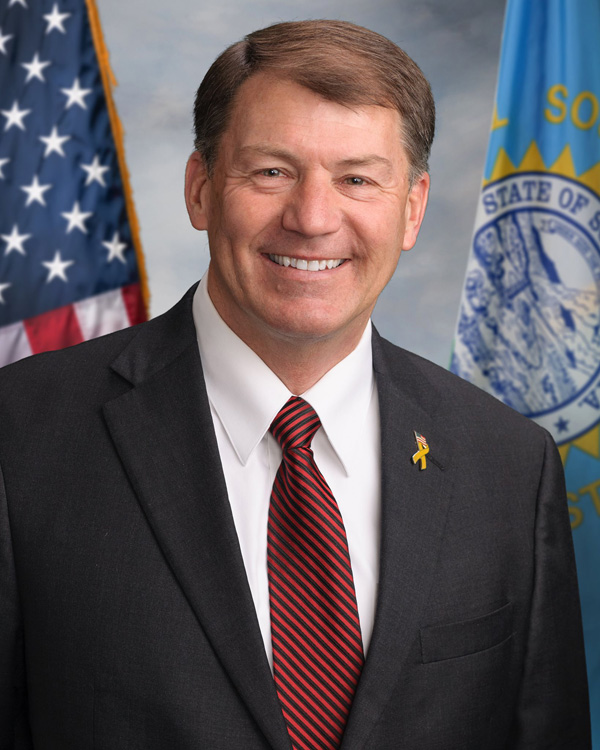

Focusing on Lowering Healthcare Costs
By U.S. Sen. Mike Rounds (R-S.D.)
Since I’ve been in the Senate, I have been focused on reversing the negative impacts Obamacare has had on South Dakota families. I was working as governor when Obamacare was signed into law and began to be implemented, and I saw firsthand how destructive the law was. For example, before it was enacted, South Dakota had more than a dozen insurers providing individual insurance. Today, there are just two. Additionally, South Dakota’s plans addressed those with pre-existing conditions before Obamacare’s one-size-fits-all mandates drove companies out of the market.
Costs for families continue to skyrocket because Obamacare—the so-called Affordable Care Act—is simply unaffordable for most South Dakotans. I am working in the Senate to find a solution to our country’s healthcare needs. I recently invited Sen. Lamar Alexander (R-Tenn.), chairman of the Senate Committee on Health, Education, Labor and Pensions, to join me in Sioux Falls where we spoke with members of the South Dakota Association of Healthcare Organizations about how we can minimize healthcare costs and lower premiums for South Dakota families. We also discussed ways we can reduce healthcare costs that both Republicans and Democrats can agree on, including addressing the rising costs of prescription drugs, incentivizing primary care and preventative care, and increasing transparency.
Chairman Alexander has years of experience working on healthcare issues, and I appreciated having him in South Dakota with me to talk about how we can work with providers to improve delivery of care while reducing costs for consumers. Last year, we worked closely together on legislation known as Alexander/Murray, a bipartisan proposal that would have lowered health insurance premiums by up to 40 percent over three years. I also supported bipartisan legislation that would have stabilized the individual market through new risk mitigation programs. Election-year politics got in the way of both of these bills making it across the finish line.
We continue to support the full repeal and replacement of Obamacare, but we are also leading efforts to chip away at it piece-by-piece. We’re focusing on undoing the law’s most unpopular provisions, like the Cadillac Tax, that would impose a 40 percent tax on certain employer-sponsored health care plans. I introduced a bipartisan bill this year to repeal the Cadillac Tax provision in Obamacare with Sen. Martin Heinrich from New Mexico. We already have more than 20 cosponsors of our legislation, and we continue to work hard to move it forward.
We were successful in getting rid of Obamacare’s individual mandate in last year’s tax reform package, as well as the Independent Payment Advisory Board, which was often called a “death panel.” While there is more work to do, we have made progress undoing some of Obamacare’s worst provisions.
When we’re talking about how to reduce healthcare costs, prescription drug prices are an important part of the discussion. We all know costs are way too high for prescription drugs. Patient demand for prescription drugs continues to grow, especially as the baby-boomer generation ages and their health care needs increase. I’m working to find legislative approaches that incentivize companies to lower their prices and produce safe, effective products while at the same time allow the U.S. to continue leading the way in research and development for new life-saving medicines.
I cosponsored the CREATES Act again this Congress, bipartisan legislation that seeks to enhance competition in the prescription drug market by fast-tracking the approval process for generic drugs. I also support President Trump’s initiatives to lower drug prices. His plan would end the gaming of regulatory and patent processes by drug makers to unfairly protect monopolies and would streamline and accelerate the approval process for over-the-counter drugs.
I will continue working to provide relief to South Dakota families, who deserve quality, affordable healthcare. We’ll continue to focus on reforms that are patient-centered and market-based, while also working to protect individuals with pre-existing conditions who have purchased insurance, children remaining on their parents’ plans until the age of 26, guaranteed renewal of coverage and portability of coverage. These principles will give all South Dakotans the opportunity to access affordable health care coverage and give them a choice when it comes to making healthcare decisions that are best for themselves and their families.
###
